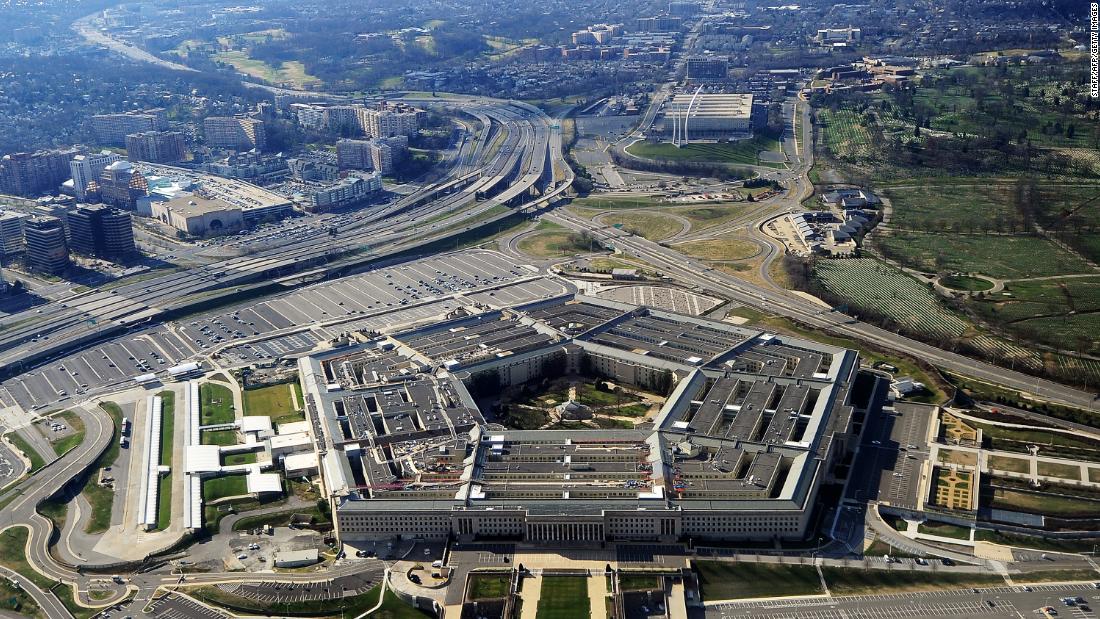The attacks mark the first military action known under President Joe Biden. The site was not specifically linked to the rocket attacks, but is believed to be used by Iran-backed Shi’ite militias operating in the region.
Pentagon spokesman John Kirby said the attacks took place “under the direction of President Biden” and were authorized not only to respond to recent attacks against American and coalition forces, but to deal with “continuing threats to this staff”.
Kirby said Biden conducted the attacks after consulting with US allies, including coalition partners.
“Specifically, the attacks destroyed several facilities located at a border control point used by several Iranian-supported militant groups, including Kait’ib Hezbollah and Kait’ib Sayyid al Shuhada,” said Kirbry. “The operation sends an unmistakable message; President Biden will act to protect the people of the American coalition. At the same time, we have acted deliberately with the aim of reducing the general situation in both eastern Syria and Iraq.
The site is believed to be used as part of an arms smuggling operation by militias. The attacks were carried out to diminish the groups’ ability to carry out future attacks and to send a message about the recent attacks, the American official said.
The decision to target the site in Syria was made “from the top down,” said a defense official, and not because of a specific military recommendation.
The attacks take place at a time when Washington and Tehran are positioning themselves for negotiations on Iran’s nuclear program, potentially complicating an already fragile process.
The United States has definitely not blamed any specific group for the rocket attacks or attributed them to any Iranian representative in the region, but the government has made it clear where it blames it.
Earlier this week, White House spokeswoman Jen Psaki said the United States held Iran accountable for the actions of its representatives.
A February 15 rocket attack on coalition forces near Iraqi Kurdistan’s Erbil International Airport, killed a civilian contractor and injured four American contractors and a US military. At the time, Psaki said that Biden and the administration “reserve the right to respond in the manner and at the time of our choice”.
“We will respond in a calculated manner to our schedule and using a mix of tools, visible and invisible,” Psaki told reporters, a day after Biden spoke to the Iraqi Prime Minister, a discussion that focused mainly on rocket attacks. . “What we will not do, and what we have seen in the past, is to attack and risk an escalation that will fall into the hands of Iran by further destabilizing Iraq, and that is our priority,” added Psaki.
The US attacks come as Washington and Tehran take a stand for negotiations on Iran’s nuclear program, potentially complicating an already fragile process.
The government has made clear where it blames the attacks, which came amid growing concern that Iran or its representatives would retaliate to mark the one-year anniversary of the assassination of Iranian general Qasem Soleimani by the United States.
“We have stated before that we will hold Iran accountable for the actions of its representatives attacking the Americans,” State Department spokesman Ned Price said on Monday, noting that “many of these attacks used Iranian weapons supplied and supplied by Iran.”
Iranian Foreign Ministry spokesman Saeed Khatibzadeh has denied any connection to the February 15 attack in Erbil and Iran has not taken responsibility for any of the other attacks. “Although these rumors are strongly rejected, the dubious attempt to attribute them to Iran is also strongly condemned,” said Khatibzadeh, according to a February 16 report by Iran’s official news agency, Mehr.
This story is emerging and will be updated
